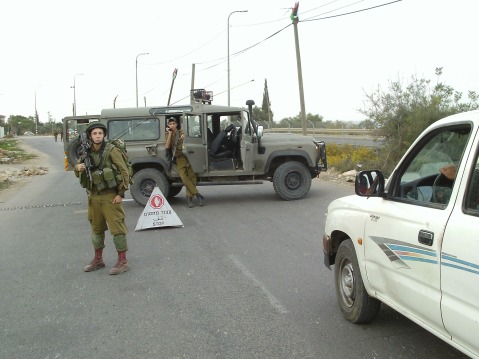Category: Nablus
-
Prisoner released leads to celebrations in Awarta
18th March 2014 | International Solidarity Movement, Nablus Team | Awarta, Occupied Palestine Yesterday in the village of Awarta, 26-year-old Rais Abdat was released from an Israeli prison. Three years ago, two youths from Awarta killed a settler from the nearby illegal settlement of Itemar, and for this act they both received five life sentences.…
-
Settlers attack stopped by farmers in Talfeet
6 March 2014| International Solidarity Movement, Team Nablus| Talfeet, Occupied Palestine Farmers caught a settler cutting down olive trees in Talfeet, delivered him to the Israeli police and lodge a complaint toward him. This morning, at around 10:30, three farmers working on their land in Talfeet caught a settler cutting down ” title=”olive trees”>olive trees…



